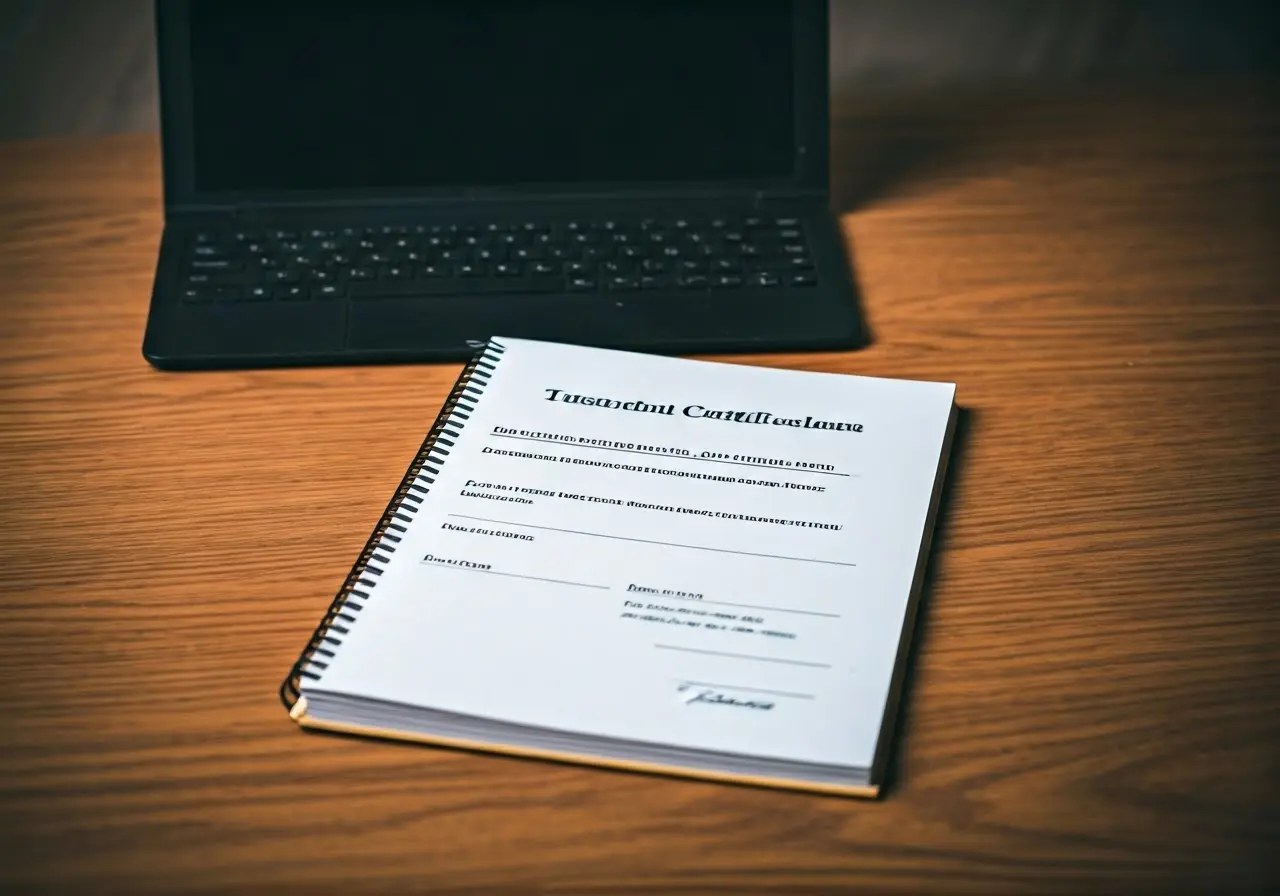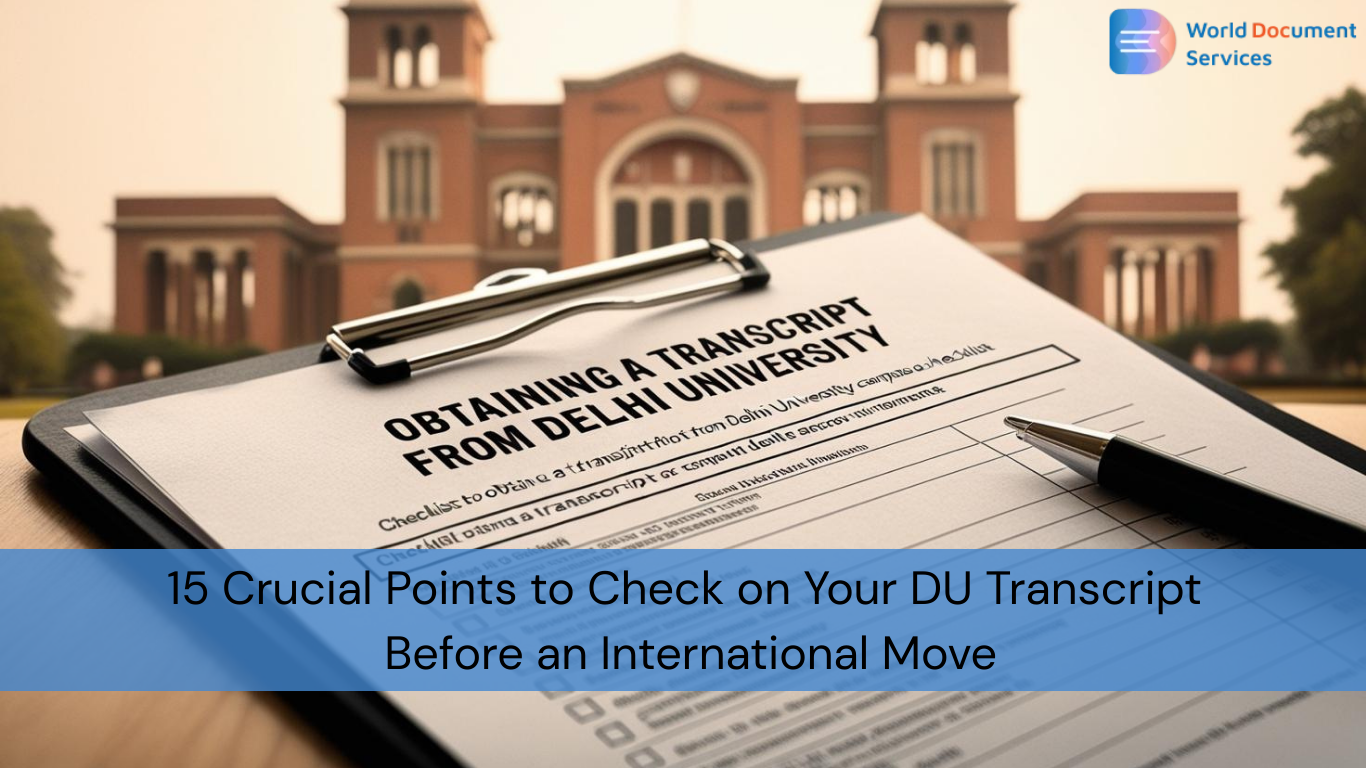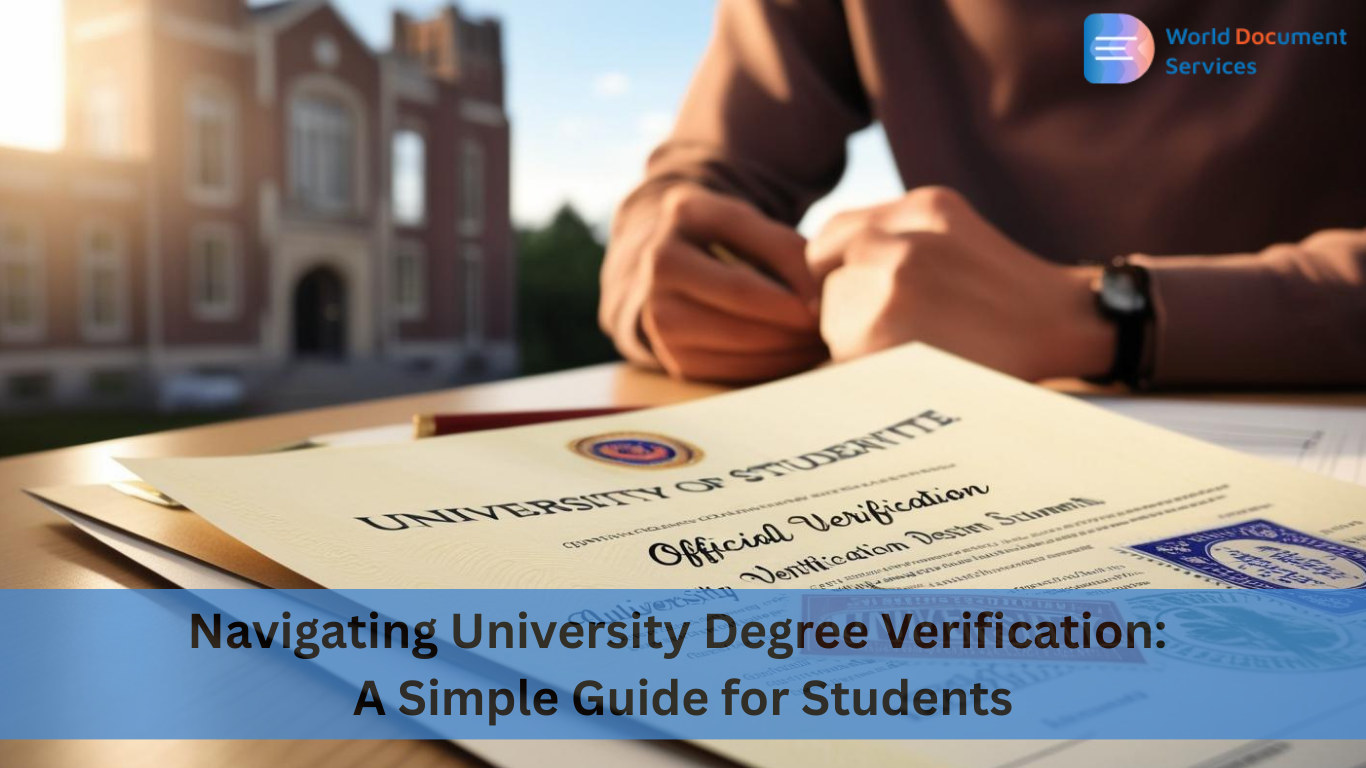When applying to universities, one of the key documents you’ll encounter is the transcript certificate. This document plays a crucial role in the admissions process, but you might wonder why it’s so important. In this blog, we’ll explore why universities insist on receiving transcript certificates and what they reveal about prospective students.
Need help with your Transcript Certificate? Contact Us Now!
Universities request an academic transcript certificate while trying to get any further education or scholarships or sometimes job opportunities in that particular establishment. The official record document gives out information about what courses you did, what grade you got, and what your academic stature is generally. Although sometimes it may seem just a formality, universities request a transcript for several fundamental reasons. Thus, understanding the reasons why they ask for it will help one navigate application processes better.
What Is a Transcript Certificate?
This is an official transcript certificate issued by your university or college. Here, all of your academic records in the form of a statement of courses completed, grades awarded, and credit hours earned through your program are presented. It is nothing at all like the mark sheet issued for each semester’s exams by your school or college. It summarizes all of your courses covered in different semesters.
Read more: 7 Common Mistakes to Avoid with Your Transcript Certificate Process
Why Do Universities Require a Transcript Certificate?
Universities use transcripts for several reasons, all of which are critical to ensuring a fair and smooth admissions process.
1. Verification of Academic Qualifications
Universities require a transcript to verify an applicant’s qualifications. When one is applying for admission into a particular program, the institution has to confirm whether the applicant meets the requirements specified. The transcript details the courses that one has undertaken and the grades he or she has attained; thus, one will be academically qualified to attend the applied program.
2. Assessment of Academic Rigor
Apart from grades, the transcript also reflects the level of academic challenge of the studies that an applicant has undertaken. From this, the university will then be able to determine if the applicant is ready for advanced studies. For example, if you are applying for a graduate program in biology, the university will check if you have undertaken foundational courses in biology, chemistry, and other related fields.
3. Transfer Credits and Advanced Standing
If you are transferring from another institution, a transcript is necessary to determine which credits earned previously can be transferred. In other words, with a transcript, the receiving institution can determine which courses you have already completed and which ones you still have to take. This would mean that unnecessary duplication of coursework is avoided, and education can proceed on schedule.
4. Educational Credential Assessment (ECA)
Transcripts are needed for ECA for international students or immigrants who apply for immigration. In fact, most countries require ECA for verification purposes; Canada, the U.S., and the U.K. do. A transcript will give the country a chance to judge whether your credentials meet the requirements of their education system so that your qualifications will be recognized elsewhere.
5. Scholarship and Financial Aid Applications
It incorporates your marks at the point when applying for scholarship or grant support. Routinely, while presenting the papers of your application for appraisal to a scholarship board, such a board examines their scholastic success. Considering how that record within your transcript falls, the possibility of a contender winning a scholarship or being resource-bound for future explorations increases.
6. Work verification
At times, he or she will want to see your transcripts, which are usually requested for a certain position or even more often for those positions that require special academic skills. A resume would contain all qualifications; a transcript, however, makes available in detailed form all the courses taken and grades received. In fields such as law, health care, or engineering, proof that you actually have the necessary educational credentials to do so can be obtained by using your transcript when seeking employment.
7. Proof of Graduation
A transcript also serves as proof of completion of a degree. A degree certificate or diploma will only state that you have graduated; however, a transcript gives full details of your academic history, grades, and courses completed. Information is vital when filling out job application forms, further study, or immigrating since the account will cover the full background record.
How to Get a Transcript Certificate
Usually, the process of getting a transcript certificate is as follows:
- Request the Transcript: Inquire from your registrar or academic department within your university for your transcript. Most universities have an online portal where you can submit requests for transcripts, although some may require it to be via email or in person.
- all the required documents may involve proof of graduation, payment for the transcript, or the student ID.
- Pay for the fees; most universities normally have a fee attached to the issuance of the transcripts, though this usually varies with the number of copies ordered and the method of delivery.
- Wait for Processing: In weeks or days after submitting your request, the university gets your transcript processed from their backend.
- Get Your Transcript: You can get it by post or collect it in person, and most of the universities are now providing digital copies to make sure it reaches you quickly.
Read more: Can I Get My University Certificate Verified Online?
Conclusion
A transcript certificate is one of the most important documents that universities use to verify your academic credentials. Whether for further education, transfer credits, scholarships, or employment, transcripts provide a comprehensive record of your academic history and performance. This would help understand why universities need them and how to obtain them in order to successfully process an application. Be it further studies, scholarships, or employment, your transcript becomes a critical document to be included while representing your academic record precisely and appropriately.
Download the World Document Services App
You may enjoy a hassle-free experience by downloading our mobile app from either the App Store or the Play Store. It works with both iOS and Android devices.
FAQs
Q: What is the difference between a transcript certificate and a mark sheet?
A: A transcript certificate is an overall record of the courses taken and grades achieved throughout your whole academic period. A mark sheet generally contains the result of an examination conducted in one semester.
Q: How do I apply for my transcript online?
A: You will find online sites where you can ask for, at maximum, universities for the transcript of the classes. Most of the time, you will be able to request, pay, and collect the transcript electronically.
Q: How long does it take to get a transcript certificate?
A: The time taken to process the transcripts varies from one university to another, sometimes taking a few days and other times a few weeks, depending on the workload of the university.
Q: Do I have to pay to get a transcript certificate?
A: Most universities charge a fee to issue the transcript. The transcript fees are chargeable based on the number of copies and delivery.
Q: Can I use my transcript for a job application?
A: Yes, employers, especially in specialized fields, may request a transcript to verify your academic qualifications.















 Call Us
Call Us Mail Us
Mail Us WhatsApp
WhatsApp
